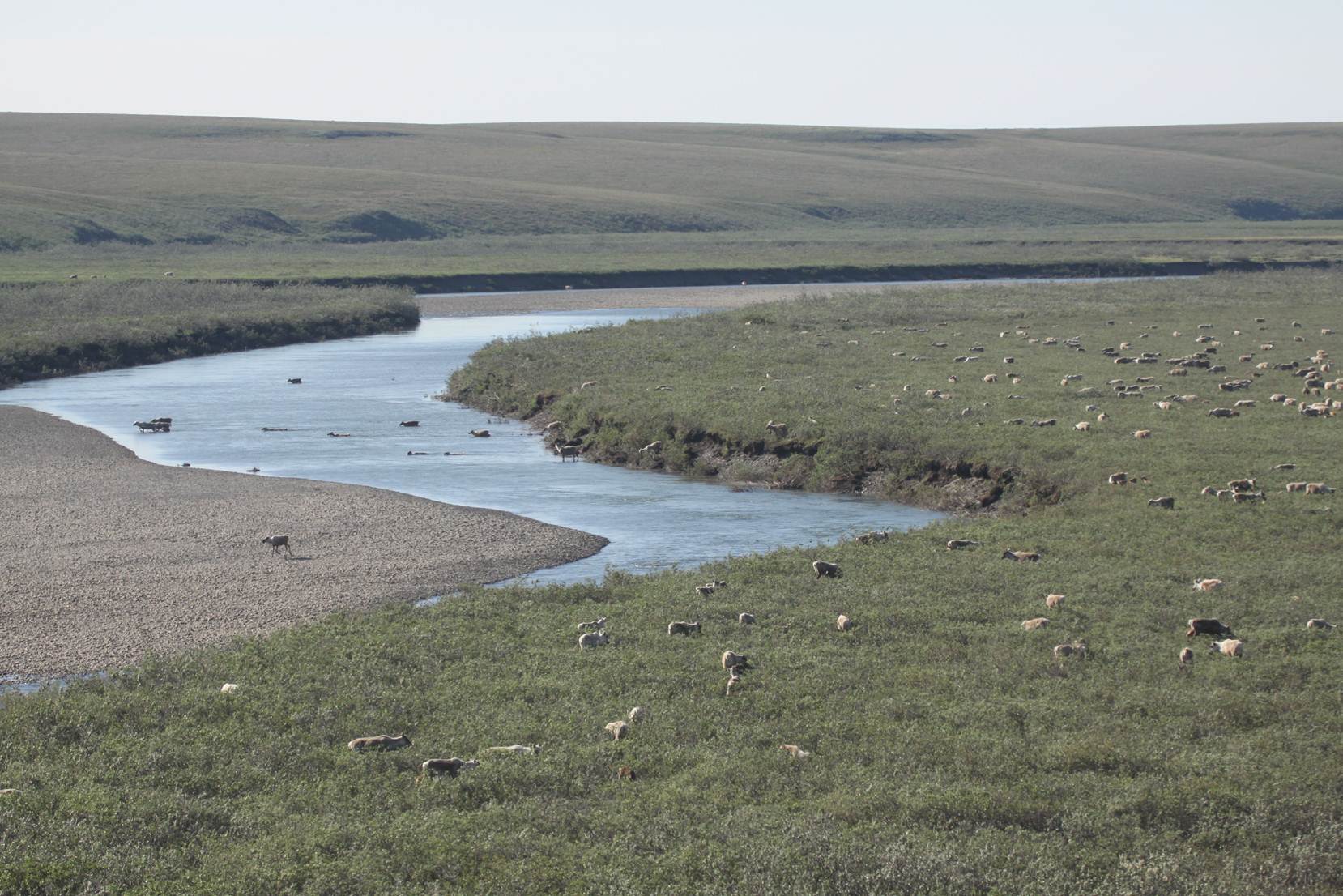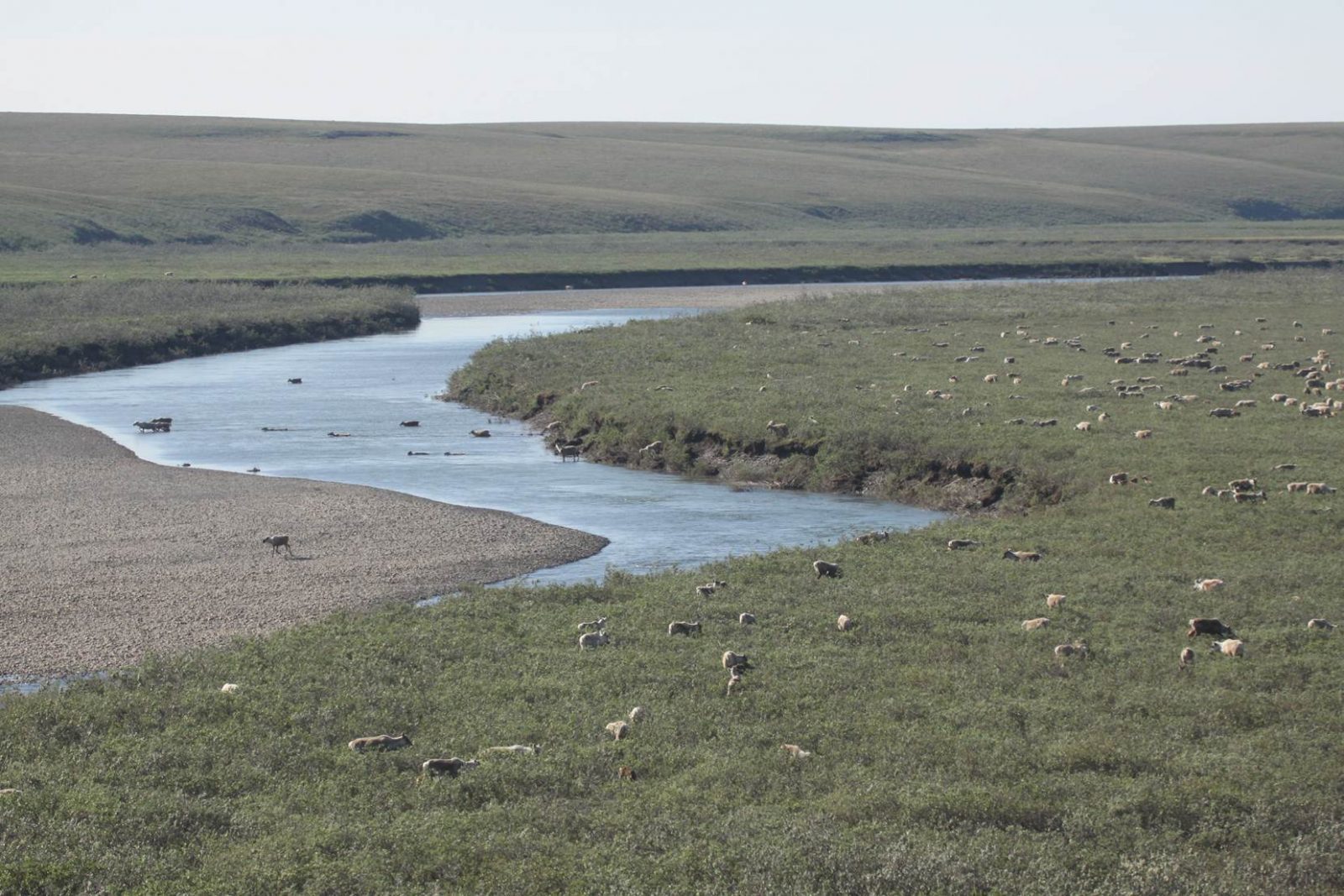
Biden administration undermines climate promises
The Biden administration confirmed through legal briefs filed in court May 26 that it will undermine its own climate promises by continuing to defend the legally flawed Trump-era approval of ConocoPhillips’ massive Willow oil project.
Those legal briefs were submitted in response to the lawsuit we filed in November on behalf of Sovereign Iñupiat for a Living Arctic and five allied groups calling out multiple agencies for unlawfully rubber-stamping a project with known harms to people and wildlife.

We absolutely stand behind Biden’s climate and environmental justice promises. We hope the administration decides to right the wrongs of the prior administration’s approval of Willow, a process that blew through an environmental review with complete disregard for the law, science, and local communities.
We will respond to the administration’s briefs in court in the coming weeks. In the meantime, read our press release.
Willow is a carbon nightmare
The Willow Master Development Plan would involve the construction and operation of an oil and gas processing facility, multiple satellite drill pads with up to fifty wells on each pad, a spider web of gravel roads, a new airstrip, pipelines, and two gravel mines within a protected river setback. It would produce a massive amount of associated greenhouse gas emissions from combusting that oil, greatly exacerbating the climate impacts this administration vowed to curtail.
The project would further impact air, water, animal habitat and food access in the surrounding area. We filed a lawsuit in November 2020 charging the Interior Department, U.S. Bureau of Land Management, and U.S. Fish and Wildlife Service with unlawfully authorizing Willow despite the project’s known harms to people and wildlife.
In February, the Ninth Circuit Court of Appeals ordered a halt to construction of the project after finding that BLM had likely underestimated the impacts from Willow’s greenhouse gas emissions. The court also determined that Willow was likely to irreparably harm the community of Nuiqsut.
Trustees attorney Bridget Psarianos said “the administration’s defense of Willow goes completely against its stated promises to take immediate and effective climate action, protect biodiversity, and take environmental justice concerns seriously. Yet, the Biden administration is continuing to defend the Trump administration’s rubber stamp of the Willow project in the face of relentless pressure from ConocoPhillips and Alaska’s congressional delegation.”
How is a Trump era oil agenda still in play?
When there’s a transition between administrations, the incoming agencies and departments inherit the lawsuits filed during the previous term. The incoming legal team has to look at the cases and the administration then makes decisions about whether to continue defending them or if doing so is inconsistent with the law.
In this case, our legal arguments are clearly compelling.
Our lawsuit specifically calls out BLM for approving permits without taking a hard look at impacts as required by the National Environmental Policy Act. It also challenges Fish and Wildlife Service for its failure to ensure impacts to polar bears will be mitigated, and the Army Corps of Engineers for improperly issuing Clean Water Act approvals for fill of irreplaceable wetlands.
It’s important to note the timing of administrative actions. ConocoPhillips applied for its final permits in December 2020. The Trump administration gave the final green light and authorization for Conoco to begin construction on January 20, just hours before President Biden signed an executive order directing all agencies to review and act on any decisions at odds with the administration’s climate goals—this order specifically named the Willow project.
The administration’s legal briefs on Willow now claim that federal agencies did an adequate analysis under the law, accuse plaintiffs of “cherry picking” at problems with the agencies’ findings and analyses, and continue to claim that the lawsuit – filed within three weeks of Interior’s decision to approve Willow – was filed too late, despite a panel of Ninth Circuit judges calling that argument into question earlier this year.
The administration also argues that a bare-bones Trump era analysis of greenhouse gas emissions should be upheld, even though a recent Ninth Circuit Court of Appeals decision found the opposite in a separate case.
So what should happen with Willow?
Minimally, we’d like to see the Willow environmental review process start over, beginning with the requirement of a complete project application from ConocoPhillips before the review process begins. From there, we’d like to see full and robust inclusion of local communities and tribes in decision-making processes, and a full and robust analysis of impacts founded on science and traditional knowledge.
That’s a start.
The Trump administration’s approval of Willow violated the law and public trust. The ongoing health of Alaska lands, waters, and communities should not be compromised for the profit interests of Outside corporations or the political agenda of Alaska’s delegation.
We believe the Biden administration agrees, and hope it will act to make it so.


